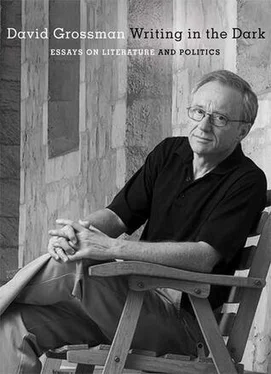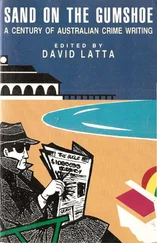The tragedy that befell my family and me upon the death of our son Uri does not give me special privileges in the public discourse. But I believe that facing death and loss brings a kind of sobriety, a clarity, or at least an enhanced capacity to distinguish between primary and secondary. Between what can be obtained and what cannot. Between reality and fantasy.
Any intelligent person in Israel — and, I will add, in Palestine — knows today exactly where the lines of any possible resolution to the conflict between the two peoples lie. Any intelligent person, on our side or theirs, knows deep in his heart the difference between dreams and heartfelt desires, and what may be obtained at the end of negotiations. Whoever does not know this is already not a partner for dialogue, whether Jewish or Arab, because he is trapped in his hermetic fanaticism.
Let us look for a moment at those who are supposed to be our partners. The Palestinians have chosen Hamas to lead them, and Hamas refuses to negotiate with us or even recognize us. What can be done in this situation? What other steps can we take? Should we keep smothering them? Keep killing hundreds of Palestinians in Gaza, the vast majority of whom are innocent civilians like ourselves?
Go to the Palestinians, Mr. Olmert. Go to them over the head of Hamas. Go to the moderates among them, the ones who, like me and you, oppose Hamas and its ways. Go to the Palestinian people. Speak to their deep wounds, recognize their continued suffering. Your status will not be diminished, nor will that of Israel in any future negotiations. But people’s hearts will begin to open a little to one another, and this opening has huge power. Simple human compassion is as strong as a force of nature, particularly in a state of stagnation and hostility.
For once, look at them not only through the crosshairs of a rifle or a roadblock. You will see a nation no less tortured than we are. A nation occupied and oppressed and hopeless. Of course the Palestinians are also to blame for the dead end. Of course they had a part in the failure of the peace process. But look at them for a moment in a different light. Not only at the extremists among them, those who have an alliance of interests with our own extremists. Look at the overwhelming majority of this miserable people, whose fate is bound up with ours whether we like it or not.
Go to the Palestinians, Mr. Olmert. Do not keep searching for reasons not to talk with them. You gave up on the unilateral “convergence” plan. That was the right thing to do. But do not leave a void, for it will fill up at once with violence and destruction. Talk to them. Give them an offer that the moderates among them can accept (they are more numerous than the media suggest). Give them a proposal, so that they will have to decide whether to accept it or remain hostages of a fanatic Islam. Come to them with the bravest and most serious plan Israel is capable of offering. With the proposal that every reasonable Israeli and Palestinian knows is the limit of refusal and compromise, ours and theirs. If you delay, we will soon be nostalgic for the amateurism of Palestinian terror. We will beat our heads and shout: How did we not employ all our intellectual resilience, all our Israeli creativity, to uproot our enemy from within its own trap?
Just as there is a war of no choice, there is also a peace of no choice. Because there is no choice anymore. We have no choice, and they have no choice. And a peace of no choice should be pursued with the same determination and creativity with which one goes to a war of no choice. Because there is no choice. Whoever thinks there is, or that time is in our favor, does not grasp the dangerous underlying processes that are already occurring.
Furthermore, Mr. Prime Minister, perhaps you need to be reminded that if any Arab leader sends signals of peace, even the slightest and most hesitant ones, you must respond. You must immediately find out whether he is sincere and in earnest. You do not have the moral right not to respond. You must do this for the sake of those whose lives you will demand as sacrifice if another war breaks out. If President Assad says Syria wants peace, even if you do not believe him — and we are all suspicious — you must offer to meet with him that very same day. Do not wait even one day. When you went to war, you did not wait so much as one minute. You stormed the battlefield with all your power. With all your weapons. With all your powers of destruction. Why is it that when there is a flicker of peace, you immediately reject it? What do you have to lose? Do you suspect the Syrian president? Go and present him with terms that will expose his plot. Offer him a peace process that will continue for a number of years, after which, if he meets all conditions, all restrictions, he will get the Golan Heights back. Hold him to a process of continued dialogue. Act in such a way that this possibility will emerge in the consciousness of his people. Help the moderates, who surely exist there too. Try to shape reality and not merely be its collaborator. That is what you were elected to do. That — precisely that.
In closing, clearly not everything depends on our own actions, and there are stronger forces at work in the region and in the world. Some of them — like Iran, like extreme Islam — seek to harm us. Nevertheless, much depends on what we do and what we are. The disagreements today between right and left are not really that great. The decisive majority of Israeli citizens understand at this point, however reluctantly, what shape the solution to the conflict will take. Most of us understand that the country will be partitioned, that a Palestinian state will arise. Why, then, do we continue to exhaust ourselves with the internal strife that has been going on for almost forty years ? Why does the political leadership continue to reflect the positions of the extremists and not of the majority? Surely our situation would be far better if we reached a national accord among ourselves before circumstances — external pressures, a new intifada, or another war — force us to do so. If we do that, we will save ourselves from years of decline and mistakes, years in which we will cry out again and again, Behold, earth, for we have been very wasteful.
From the place where I stand now, I plead, I call upon anyone who is listening — young people back from war, who know they are the ones who will be asked to pay the price of the next war, Jewish and Arab citizens, right and left: Stop for one moment. Look over the precipice, think how close we are to losing what we have created here. Ask yourselves if the time has not come to pull ourselves back, snap out of the paralysis, and demand for ourselves, finally, the life we deserve to live.
Rabin Square, Tel Aviv, November 4, 2006












